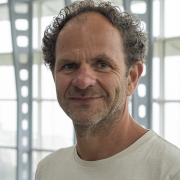
Copyright : Laboratoire LEMAR- 2018
Fabrice Pernet (LEMAR) et Gilles le Moullac (EIO)
National
Fondation pour la Recherche sur la Biodiversité
Ministère de la Transition Ecologique et Solidaire
Start Date
04/04/2025
End Date
04/04/2025
Increased anthropogenic CO2 emissions are absorbed by the world’s oceans, leading to decreasing marine pH and carbonate levels concomitant with increasing temperature, known as ocean acidification (OA) and ocean warming (OW), respectively. We address critical gaps in knowledge and shortcomings regarding effects of OA and of its interaction with OW (i.e. OAOW) by investigating acclimation and adaptive capacities of two oyster species inhabiting contrasted thermal habitats: the temperate/eurytherm Pacific oyster (Crassostrea gigas) and the tropical/stenotherm pearl oyster (Pinctada margaritifera). We will expose the genitors and their progenies to environmentally-relevant pCO2 and temperatures corresponding to current conditions and to the most severe 2100 projections (pH -0.35 units, T +3°C) and evaluate the interactive effects on their physiology, ecologically-relevant behaviours, and sensory capacities. This project will shed light on understanding the plastic (acclimation) and multigenerational adaptive responses of oysters facing OA ± OW via genetic and non-genetic mechanisms. The proposed topic relies on a comparative and integrative approach that will consider the impacts of OAOW on life traits in bivalves using different tools (molecular, biochemical, ethological) at different biological levels (from gene to organism) and life stages (larval stages to adulthood).
#top .avia-gallery.av-av_gallery-77c73c81d3e1c086879cfb93b01fe27d .avia-gallery-thumb a{ width:25%; }
 Microhabitats and ecology
Scroll to top
Microhabitats and ecology
Scroll to top